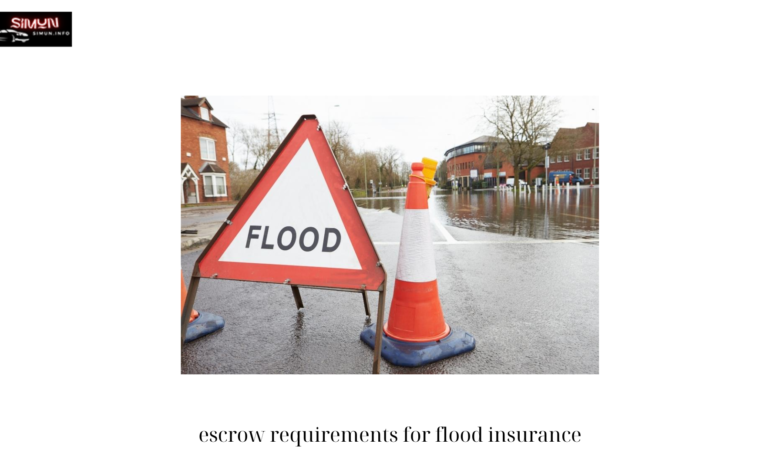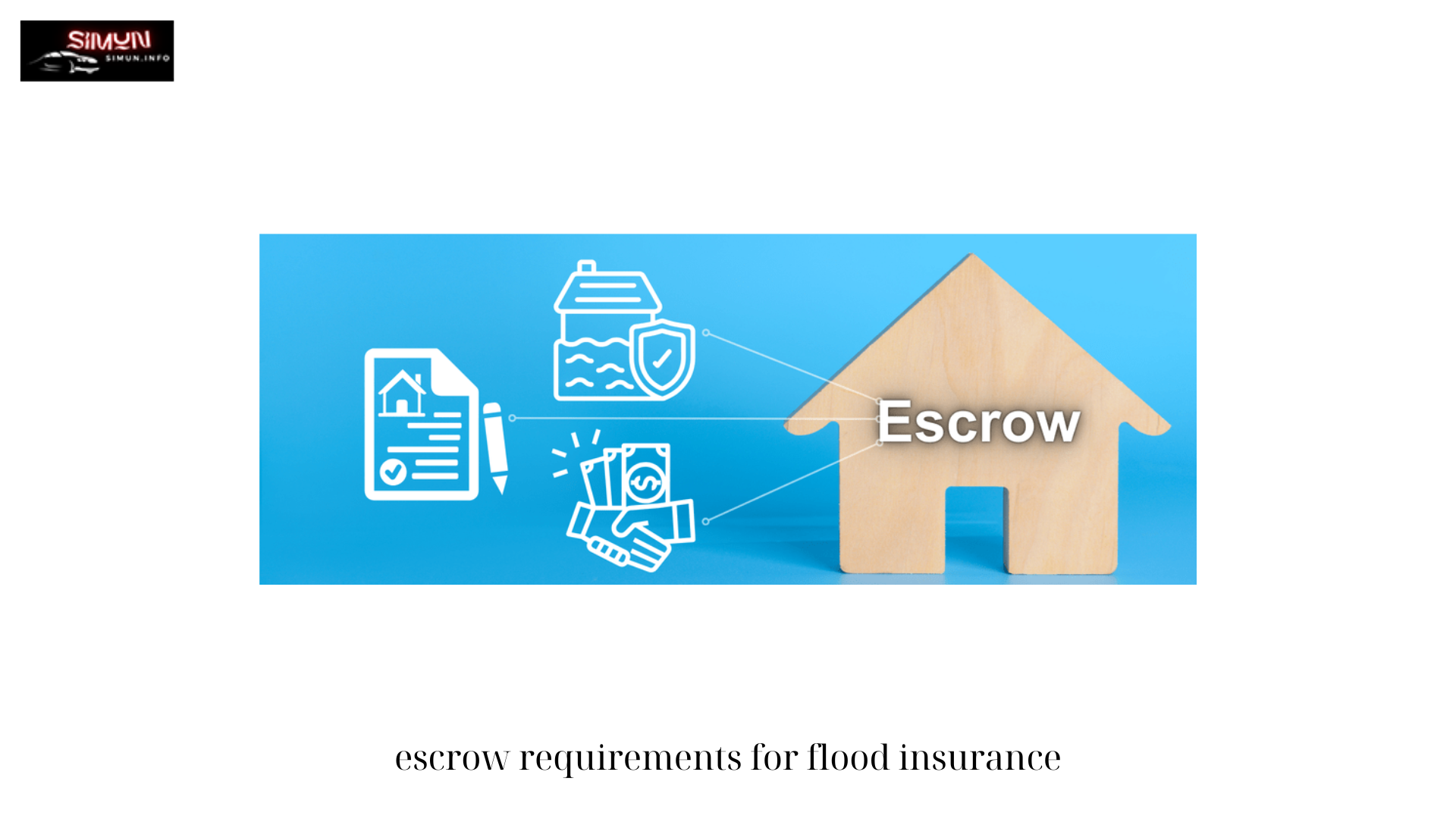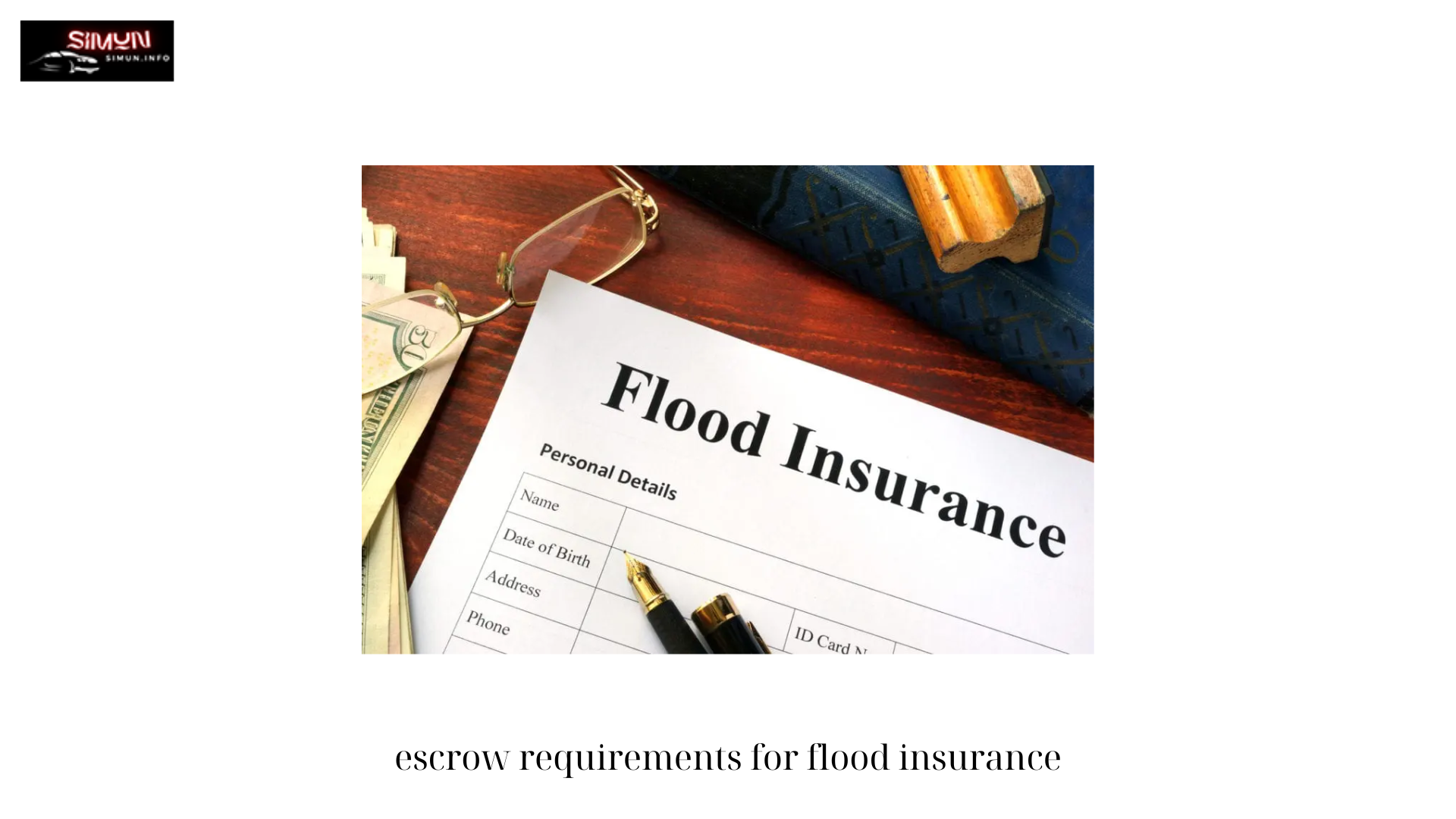
Flood insurance is a critical aspect of protecting your property from potential damage caused by flooding. In areas prone to floods, having the right insurance coverage is essential for homeowners and businesses alike. However, when it comes to acquiring flood insurance, there is another important consideration: escrow requirements. Understanding the escrow requirements for flood insurance is vital for property owners to ensure compliance and financial security. In this article, Simun will delve into the concept of escrow requirements and their significance in the context of flood insurance.
Understanding Escrow Requirements for Flood Insurance

Ensuring compliance with escrow requirements for flood insurance, property owners must understand their obligations and responsibilities. It’s crucial to review the loan agreement and communicate with the lender to determine the specific escrow arrangements. Property owners should also stay informed about any changes to flood insurance requirements and be proactive in maintaining adequate coverage. Failure to comply with escrow requirements may result in penalties, including potential foreclosure in extreme cases.
Escrow requirements refer to the funds that are held in a separate account by a third party, typically a lender, to cover specific expenses related to the property. In the case of flood insurance, the escrow account is used to ensure that the property owner has sufficient funds to pay for the insurance premiums. This arrangement helps protect both the lender and the property owner by ensuring that the flood insurance premiums are paid in a timely manner.
One of the primary reasons for escrow requirements for flood insurance is to mitigate the risk of non-payment or underpayment of insurance premiums. By collecting funds in advance and holding them in an escrow account, the lender can ensure that the flood insurance premiums are paid on time. This mechanism protects the lender’s interest in the property and ensures that the property owner maintains continuous coverage throughout the loan term.
It’s important to note that escrow requirements for flood insurance may vary depending on the lender and the loan program. While most lenders require escrow accounts for flood insurance premiums, there may be exceptions for certain types of loans or properties. Additionally, some property owners may choose to pay their flood insurance premiums directly without using an escrow account. However, these cases are less common and often subject to specific requirements and conditions.
Escrow requirements for flood insurance are typically imposed by mortgage lenders. When a property is located in a designated flood zone, lenders require the borrower to obtain flood insurance as a condition of the loan. The lender then sets up an escrow account to collect the necessary funds for the insurance premiums. This ensures that the insurance premiums are paid alongside the property owner’s monthly mortgage payments.

The Federal Emergency Management Agency (FEMA) plays a crucial role in determining flood zones and establishing flood escrow requirements for flood insurance. FEMA maps identify areas that are at high risk of flooding, known as Special Flood Hazard Areas (SFHAs). Lenders use these maps to assess the flood risk associated with a particular property. If a property is located in an SFHA, the lender will require flood insurance, and consequently, escrow requirements will be imposed.
Escrow requirements for flood insurance provide several benefits to both lenders and property owners. For lenders, it minimizes the risk of non-payment, ensuring that the property remains adequately insured. This protects the lender’s investment and reduces the likelihood of financial losses in the event of flood damage. For property owners, escrow requirements provide convenience by combining the escrow requirements for flood insurance premiums with the monthly mortgage payments. Instead of having to remember separate payment dates and amounts, property owners have the peace of mind that their flood insurance is being taken care of automatically.
It’s important to note that escrow requirements for flood insurance may vary depending on the lender and the loan program. While most lenders require escrow accounts for flood insurance premiums, there may be exceptions for certain types of loans or properties. Additionally, some property owners may choose to pay their flood insurance premiums directly without using an escrow account. However, these cases are less common and often subject to specific requirements and conditions.
To ensure compliance with escrow requirements for flood insurance, property owners must understand their obligations and responsibilities. It’s crucial to review the loan agreement and communicate with the lender to determine the specific escrow arrangements. Property owners should also stay informed about any changes to flood insurance requirements and be proactive in maintaining adequate coverage. Failure to comply with escrow requirements may result in penalties, including potential foreclosure in extreme cases.

In conclusion, understanding escrow requirements for flood insurance is essential for property owners. These requirements help ensure that the necessary funds are available to pay for flood insurance premiums, providing financial security and protection against flood-related risks. By complying with escrow requirements, property owners can demonstrate their commitment to maintaining continuous coverage and safeguarding their investments. Therefore, it is crucial for property owners to familiarize themselves with the escrow requirements imposed by their lenders and to stay updated on any changes in flood insurance regulations.
Conclusion: So above is the Understanding Escrow Requirements for Flood Insurance article. Hopefully with this article you can help you in life, always follow and read our good articles on the website: BIRA.INFO




